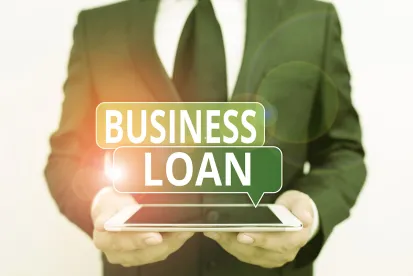On June 12, 2020, Gov. John Bel Edwards signed Act 311 into law, creating a Louisiana Main Street Recovery Program. The program sets aside $300 million for a small-business grant program, using funds previously provided by the federal government to Louisiana under the Coronavirus Aid, Relief, and Economic Security (CARES) Act. Eligible businesses can apply for up to $15,000 to cover “eligible expenses” (discussed below). Within the first 60 days, the Recovery Program will award at least $40 million to minority, women, or veteran-owned business enterprises.
The program will be administered by the Louisiana state treasurer. The program will begin taking applications on July 28, 2020. Interested businesses can sign up for email notifications at louisianamainstreet.com, call 1.888.795.4947, and gather the documents they will need in order to participate.
Eligible businesses include any for-profit corporation, limited liability company, partnership, or sole proprietorship that meets all the following criteria:
-
Was domiciled in Louisiana as of March 1, 2020, and is in good standing with the Louisiana secretary of state, if applicable
-
Suffered an interruption of business caused by forced or voluntary closure or restricted operations due to the burden of social distancing measures, decreased customer demand, cleaning or disinfection expenses, or the cost of providing personal protective equipment related to COVID-19
-
Is owned at least 50% by one or more Louisiana residents, whether individual resident citizens or Louisiana domestic business entities
-
Filed Louisiana taxes for tax year 2018 or 2019, or, if an eligible business formed on or after Jan. 1, 2020, will file Louisiana taxes for tax year 2020
-
Had no more than 50 full-time equivalent employees as of March 1, 2020, and is not part of a larger business with more than 50 full-time workers, either as a subsidiary of a business or part of a larger business enterprise, or owned by another business that has more than 50 full-time equivalent employees
-
Has customers or employees who visit or work at a physical location
-
Does not exist for the purpose of advancing partisan political activity and does not directly lobby federal or state officials
-
Does not derive income from passive investments without active participation in business operations. It is not clear whether this is limited to companies primarily involved in passive income-generating investments.
Grants will first be given to businesses that did not receive a US Small Business Administration (SBA) Guaranty Paycheck Protection Program (PPP) loan, an SBA Economic Injury Disaster Loan (EIDL) or EIDL Emergency Advance, or an insurance payment, as well as businesses owned by women, minorities and veterans. The grant program’s prioritization of applications from borrowers that received no federal assistance will continue through August 18, 2020. Thereafter, businesses that did receive federal aid will be eligible to participate, but the amount of the assistance previously received from other sources will be subtracted from the claimed grant amount.
Costs related to meeting public health requirements tied to COVID-19 qualify as eligible expenses, including but not limited to costs related to the following:
-
Creating social distancing (signs, floor markings)
-
Cleaning and disinfecting
-
Purchasing equipment to protect employees and/or customers (hand sanitizer, masks, gloves, thermometers)
-
Purchasing contactless equipment (credit card readers)
-
Purchasing equipment for teleworking (laptops, printers, scanners)
-
Purchasing necessary reopening expenses (tents, outdoor tables)
-
Purchasing signage pertaining to reopening or restructuring
-
Installing drive-through windows
Business interruption costs related to COVID-19 qualify as eligible expenses, including but not limited to the following:
-
Unemployment insurance costs
-
Providing paid sick leave
-
Inventory replacement (replacing spoiled food)
-
Increased labor costs (hiring delivery drivers)
-
Mortgage interest
-
Rent
-
Payroll
-
Utilities
The following expenses are excluded:
-
Lost profits or lost revenue
-
Damages covered by insurance, including business interruption insurance
-
Costs that have been or will be reduced by any other federal or state program, or costs disallowed by the CARES Act or any other guidance or regulation issued by the US Department of the Treasury
-
Severance pay
-
Legal settlements
Applicants will need to provide the following information:
-
Federal taxpayer identification number
-
State taxpayer identification number
-
Louisiana Department of Revenue account number
-
Business legal name and authorized representative name, address, phone number, and email address
-
Date of formation/creation
-
Business address, phone number, and email address
-
Industry category and business type
-
Certification that funds will be used consistent with the CARES Act for expenses incurred before Dec. 30, 2020
-
Documentation to support eligible expenses (invoices, proof of payment, payroll records, vendor contracts, bank/credit card statements, rental agreements or mortgage statements, utility bills)
-
Number of full-time equivalent employees (as of March 1, 2020)
-
Information for all “Controlling Owners” of the business (defined as individuals or entities who exercise the power to make policy decisions). Information includes Name, Job Title, SSN or EIN, Residential Address, and Driver’s license Number.
-
Information regarding other sources of COVID-19 funding received from US SBA programs (PPP, EIDL, EIDL Emergency Advance), other federal programs, or insurance proceeds
-
Copies of filed tax returns for 2018 and 2019
The grant program award amounts and recipients will become public information.





 />i
/>i

